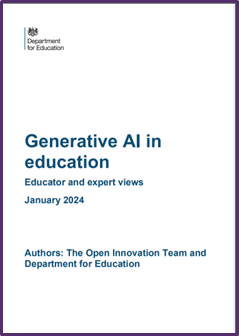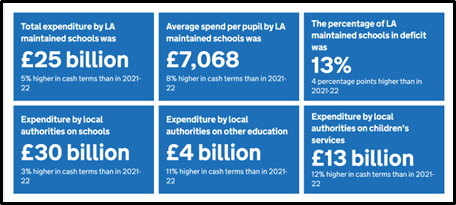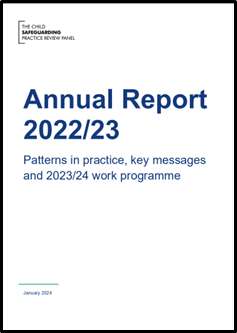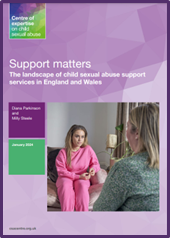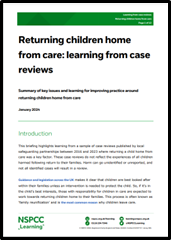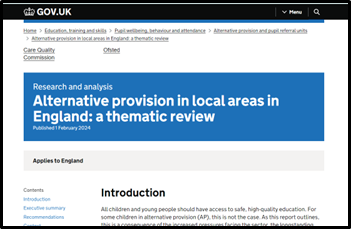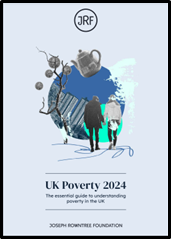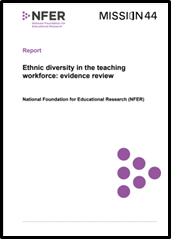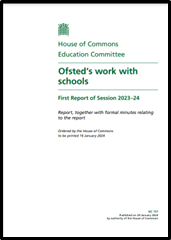Updates
Reminders From Previous Weeks
Tools & Templates
We have produced a Regional Improvement Plan (July 2023)
On 1 February Ofsted and CQC published Alternative provision in local areas in England: a thematic review
On 31 January the DfE published Generative AI in education: Educator and expert views
On 31 January the Centre of expertise on child sexual abuse published Support matters: The landscape of child sexual abuse support services in England and Wales
On 31 January NSPCC Learning published Home again: reunification practice in England: Understanding reunification practice in the children’s social care system in England
On 31 January NSPCC Learning published Returning children home from care: learning from case review
On 31 January the NFER published Ethnic diversity in the teaching workforce: evidence review
On 30 January the Child Safeguarding Practice Review Panel published its Annual Review 2022-2023
On 29 January the Education Select Committee published Ofsted’s work with
schools
On 25 January DfE published Financial year 2022-23 LA and school expenditure. DfE also published School funding statistics for financial year 2023-2024. This relates to the funding that is allocated to local authorities and state-funded schools (academies) in England by the (DfE) in each year.
On 23 January the Joseph Rowntree Foundation published UK Poverty 2024: The essential guide to understanding poverty in the UK
On 18 January ImpactEd published Understanding Attendance
Findings on the drivers of pupil absence from over 30,000 young people in England
On 12 January Research in Practice invited local authorities to join a network for the National Workload Action Group (NWAG) and Valuing Social Work Project. On 2 January Community Care released a podcast Racism in social work.
On 9 January the National Policing Vulnerability Knowledge and Practice Programme (VKPP) published National Analysis of Police-Recorded Child Sexual Abuse and Exploitation (CSAE) Crimes Report 2022
On 8 January DHSC published A framework of modifiable factors to guide promotion of good mental health in babies, children and young people
On 2 January Community Care released a podcast Racism in social work.
On 19 December DfE launched a Consultation on Guidance for Schools and Colleges on Gender Questioning Children which closes on 12 March 2024
On 19 December Heidi Connor, Senior Coroner for Berkshire published a Prevention of Future Deaths report following the Ruth Perry inquest. Ofsted’s response is here. The DfE response is here
On 18 December DfE published the government’s response to the review into safeguarding children with disabilities and complex health needs in residential settings by the Child Safeguarding Practice Review Panel.
On 15 December the DfE published Children’s Social Care National Framework and Revised Working Together
On 15 December the DfE published Championing Kinship Care – The National Kinship Care Strategy
On 15 December the DfE published Children’s social care: data and digital strategy and Children’s social care: dashboard and indicators update
On 14 December, HMCTS publsihed, at section 8 of the bulletin Annual Special Educational Needs and Disability (SEND) Statistics for 2022-2023
On 14 December, DfE published statistics for 2022-23 on Parental responsibility measures
On 11 December NCB published four recommendations for change for youth diversion


